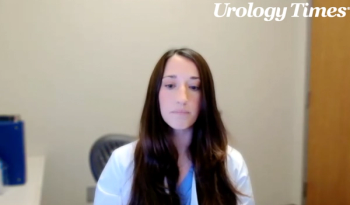
Practice Management
Latest News

Latest Videos

Shorts










Podcasts
CME Content
More News

"Site neutrality is a pivotal issue for all independent practices, and really, it's a pivotal issue for all Americans because it affects both the global cost of care as well as the acceleration and the cost of care," says Mara R. Holton, MD.

"I think the most important thing, or take-home message that we try to share, is gathering data, understanding what those metrics are from the very beginning," says Brooke B. Edwards, MD.

"The main issue in DC now is the Medicare Physician Fee Schedule," says Scott Sellinger, MD, FACS.

"The OBBA includes broad and sweeping changes that will have a profound impact," writes Allan Shen, CFP.

Scott B. Sellinger, MD, FACS, discusses the challenges facing urologists, the loss of telehealth flexibility, and why bipartisan action remains urgent.

The code, J9282, will be effective on January 1, 2026.

Findings showed that although most applicants emphasized work ethic and interpersonal skills, these attributes were not predictive of receiving an interview invitation.

Miles-Thomas emphasized the importance of Northwestern’s thoughtful implementation strategy.

"Based on this proposal, some shifts may significantly impact the practice of urology," write Jonathan Rubenstein, MD, and Mark Painter.

Both urologists emphasized that Northwestern’s integrated structure and commitment to innovation allow any urologist within the network to contribute ideas and see them developed into practice.

Avani Desai emphasizes that inadequate or unclear parental leave policies carry significant consequences, particularly during residency.

Ultimately, Desai argues, increasing transparency in policies is not only about compliance but about fostering resident well-being and inclusivity.

Policy availability varied by specialty, with urology leading in program-specific policies—yet still only at 11%.

"It is common for a payer to request patient records when submitting for a service with a category III code," write Jonathan Rubenstein, MD, and Mark Painter.

"As with all medications and services, it is important to check with the patient’s insurer to determine their policy and whether the medication will be covered," write Jonathan Rubenstein, MD, and Mark Painter.

Vikram M. Narayan, MD, FACS, offers advice for institutions that are considering investments in technology to improve clinical workflows.

"As always, we encourage you to communicate among all team members and pay attention to your documentation," write Jonathan Rubenstein, MD, and Mark Painter.

The research identified several risk factors for high burnout, including younger age, female gender, and longer working hours.

Vikram M. Narayan, MD, discusses Emory's recent shift to Apple products, aimed at reducing physician burnout and improving patient interactions.

Catch up on exclusive videos you may have missed from the first half of the year.

The most apparent risk factor is hours worked, as increased work hours directly correlate with heightened tiredness and stress.

One prominent theory suggests that younger generations of graduating urologists face increased financial pressures due to higher student loan debt.

"We have received numerous complaints about the PA and predetermination process. We all wish we could answer this differently and definitively," write Jonathan Rubenstein, MD, and Mark Painter.

"Estimate how much you will need to spend each year during various stages of retirement," advises Ronald J. Paprocki, JD, CFP, CHBC.

"We believe the confusion comes from the typical lexicon surgeons use when performing surgeries, rather than the actual code descriptor and the procedure performed," write Jonathan Rubenstein, MD, and Mark Painter.























